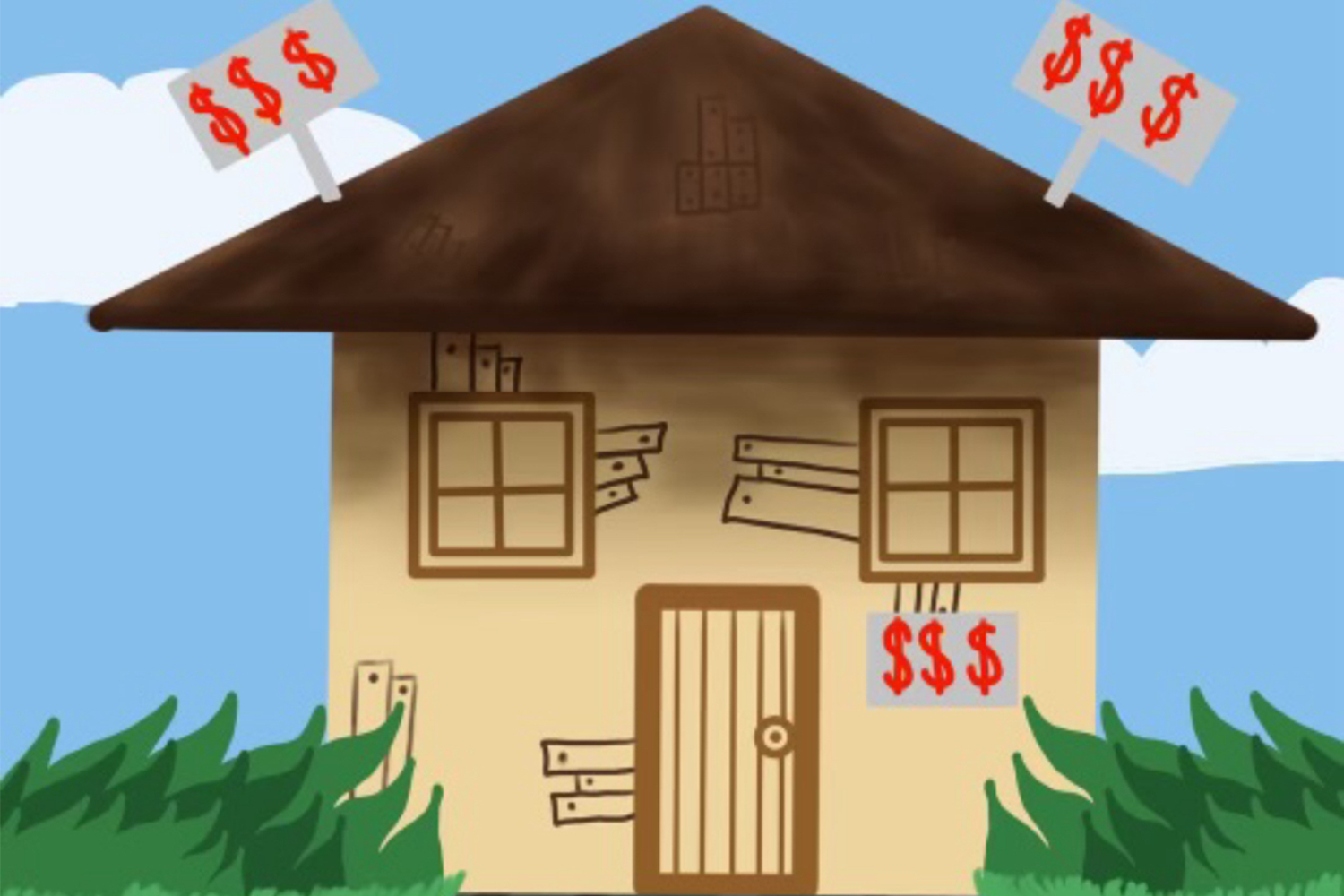Historically, economic issues have been one of voters’ top, if not the top, concerns nationwide.
As tensions rise in the upcoming presidential election, this remains true, with 81% of registered voters saying the economy will be imperative to their vote in the 2024 presidential election, according to a survey conducted by the Pew Research Center.
The bottom line for the average American family is ensuring they’re in a position where they have a place to come home to and put food on the table for their kids.
The San Mateo County Bay Area is unique, considering the median household income is $151,485 compared to the national median income of $80,610 as of 2023. Even so, risks of homelessness and grappling with the high prices of the area hold prevalence.
Differing economic initiatives
As the presidential election draws nearer, Bay Area residents reflect on these critical issues and how specific candidate policies will affect them.
Each candidate offers distinct perspectives on the economy. However, both plan to introduce new measures to do what they believe is best for the country.
Former President Trump’s economic initiatives include his tariff proposal and an extension of the Tax Cuts and Jobs Act (TJCA), which the Trump administration initially passed in 2017.
A summary of Trump’s campaign policy shows that these notions mainly benefit established low, middle, and high-income households. However, it does not consider future generations who will finance most tax decreases.
Additionally, Trump’s emphasis on tariffs on foreign goods threatens the Bay Area economy, potentially decreasing imports and exports within the region.
“If there is a huge increase in tariffs, foreign goods would be much more expensive, and if those goods become much more expensive, I would expect that few of them would be coming into the Bay Area,” said John Goodwin, a spokesperson for the Association of Bay Area Governments (ABAG), among other sibling agencies. “There’s a direct impact on the Port of Oakland and a direct impact on other ways that freight comes into the Bay Area. So that would have a chilling effect on the economy.”
Conversely, Vice President Kamala Harris’ campaign focuses on alternative measures such as expanding the child tax credit and raising corporate taxes from 21% to 28%.
Primarily, middle and low-income households benefit from these policies. However, those within the top 5% of the income distribution will experience a drawback.
In contrast to Trump’s policy of cutting corporate taxes, Harris aims to increase them, combatting the effects of the TJCA, which cut corporate taxes from 35% to 21%.
Beyond these initiatives, a primary topic of interest revolves around housing.
The housing dilemma
Despite recent housing concerns, this dilemma didn’t come out of nowhere.
On Nov. 7, 1950, Article 34 of the California Constitution passed. This policy prevents affordable public housing from being built without majority voter approval and remains significant 74 years later.
With the housing price in the local San Mateo County increasing, this policy threatens to prevent community members from being able to afford living.
“Article 34 was initially instituted to entrench segregation. It passed by less than 1% in the 1950s. Today, we see the incredibly harmful effects of it where nonprofits are expected to step up and fill in a huge gap in affordable housing provision that government public agencies are often better suited to fill,” said Sam Greenberg, a legislative aide for the San Mateo County.
One of the ways Greenberg has worked to combat housing issues is through an affordable housing bank that would allow the building of a set number of housing units for each year within San Mateo County that are more affordable for the increasing number of people moving in.
Housing initiatives extend into the upcoming presidential election as the local dilemma is also a topic of national conversation.
One of these initiatives is the Harris campaign’s housing agenda, which involves a movement to manage the housing shortage by building “3 million new housing units in the next four years” and lowering tenant costs.
Although these campaigns align with voters’ goals of accessible housing, a Pew Research study poll found that most voters trust Trump on economic issues over Harris.
“The quite interesting observation about this election is a majority of Americans being pulled right now trust Trump better on the economy, but that’s inconsistent with what most of the nation’s top economists assess over the economic plans of Trump versus Harris,” said Greer Stone, a Carlmont AP U.S. Government and Microeconomics teacher and the Palo Alto mayor.
The youth housing effect
What is consistent, though, is the historically low youth voter turnout, which is why many economic issues target a broader, older audience that may trust Trump rather than Harris.
“I don’t know how much of an impact the economy has on younger people because there’s a reason why older people tend to be more engaged. They are homeowners and have families considering retirement, and these economic decisions and factors play a much larger role at the end of the day, on their bottom line and on their bank account,” Stone said.
Greenberg provides a different perspective. As a recent college graduate, Greenberg can reflect firsthand on how the economic issues have changed youth voter outlook.
“The prospect of coming back to San Mateo County after college and buying a home is almost unheard of, and it didn’t used to be like that,” Greenberg said.
Facing the challenges of buying or renting a home, young adults have resorted to living with their families or friends. But others aren’t so lucky. Even within San Mateo County, the prospect of homelessness is a reality.
“LGBTQ youth are some of those who are feeling the impact of the homelessness crisis and lack of access to housing most directly,” Greenberg said.
The unfortunate realities that many young adults currently face is why despite each candidate’s varying approaches to economic policy, this election’s impact will significantly affect the country’s financial state and future generations.
While housing continues to be an issue for those who live in the Bay Area, with new initiatives, there is still hope for more affordable living situations.
“From the fallout of a cooling economy are opportunities being created and I’m very optimistic about them,” Goodwin said.
Regardless of political views, one thing can be said for sure. With the election in sight, the local community must use their votes to express their opinions regarding local and national issues.
Although voter representation is disproportionate across the board, individuals can change this and advocate for economic proposals they care about that will represent them locally and nationally the most.
“Youth turnout is historically lower; it’s going to be on youth to go out and vote, but also on leaders to educate youth that they have the opportunity to vote as well, even pre-register, for example, for high school students,” Greenberg said.





